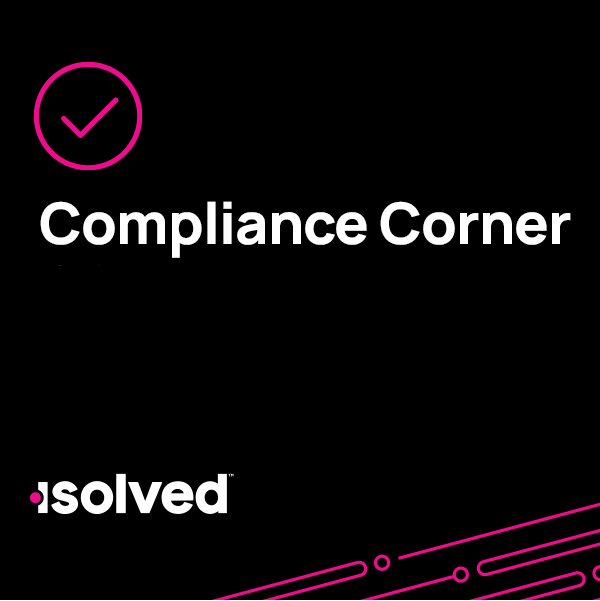Compliance Corner: California Changes
Friday May 31st, 2024
Estimated time to read: 2 minutes, 45 seconds

President Jimmy Carter reportedly said, “Whatever starts in California unfortunately has an inclination to spread.” Whether you agree with the “unfortunately” portion of the statement, the sentiment rings true—California is a trendsetter for the entire country, especially when it comes to legislation and compliance changes. What starts as a new law in California is likely to spread to other statehouses across the country.
In this month’s Compliance Corner, we highlight compliance changes in California for both HR practitioners in the state—and for HR teams in the other 49 states so they can begin to prepare for likely imminent developments.
What are some recent major compliance changes in California?
- January 2024- Sick Leave policy changes
- Employers will have to front-load employees with 40 hours of sick time annually or let employees accrue up to 80 hours (with a 40-hour yearly usage cap if desired).
- April 2024- Fast food restaurant employee minimum wage increased to $20.00 per hour beginning April 1, 2024.
- June 2024- The minimum wage for healthcare facility employees will increase from $18 per hour to $23 per hour.
- July 2024- Workplace Violence Prevention Act
- Employers with five or more employees in California must adhere to the Workplace Violence Prevention Act and its requirements, including having a Workplace Prevention Plan in place by July 1, 2024. There are additional requirements required of healthcare employers.
What makes the Workplace Violence Prevention Act so unique?
The Workplace Violence Prevention Act is the first of its kind, meaning there is not another law like it in the U.S. to date. Other states may have similar requirements to this new Act, but not on this large of a scale. The new California law applies to all industries and nearly all employer sizes. This is going to be a large lift for employers who have their main operations or even part of their operations based in California.
What must employers do to comply?
Employers are required to create and disseminate to all California employees a Workplace Violence Prevention Plan. This plan must include items like procedures to include employees in the creation of the plan and ongoing maintenance, how to report workplace violence, how workplace violence incidents will be investigated and how to review the effectiveness of the plan. Employers must also conduct training for all employees on the plan, when changes are made, new hazards, and on an annual basis. Lastly, employers must also have a Violence Incident Log that tracks every incident of violence as defined by the regulation and retain records for five years.
Employers have until July 1, 2024, to have all of the above pieces in place for their employees.
Do changes starting in California often set the tone for the rest of the country?
The short answer is yes. Many states that have bigger populations and more complex employment laws are looked to as pioneers in the world of HR. This can mean states that have similar employee-focused philosophies to California, like Washington and New York, tend to move faster in creating, passing and implementing new regulations and benefits—possibly using California as a template for their own regulation changes. California tends to be the early adopter, but that’s not always the case. For example, Colorado passed the first pay transparency law before California. Employee-centric states tend to take legislation from each other and tweak to fit their unique state.
It will be interesting to see over the next few years how the Workplace Violence Prevention Act evolves in California, and if other states will follow suit with their version of the law.
How can HR professionals in California prepare for upcoming changes?
At a minimum, any HR professional, but especially those in high compliance states like California, should be enrolled in some form of HR resource that provides alerts when new laws are passed and/or changes are made to current laws. These resources should also allow the ability to search for more information and identify actionable items needed related to those laws. These can range from sites like SHRM or CalChamber (specific to California) to more in-depth services, like isolved’s HR Services. However, it’s the responsibility of every HR professional to complete their own due diligence and stay proactive for their organization.
Want to make sure you’re in good compliance shape in California—or prepare for changes in other states? Click here to learn how isolved HR Services can help.
About Rachel Barr:

Rachel manages isolved’s HR Services team and has more than eight years of experience in the HR space. Her areas of expertise include training and development, employee relations, performance management, and compliance. Throughout her career, Rachel has supported HR teams internally and through consulting in the retail, food and beverage, hospitality, technology, distribution and publishing industries.
